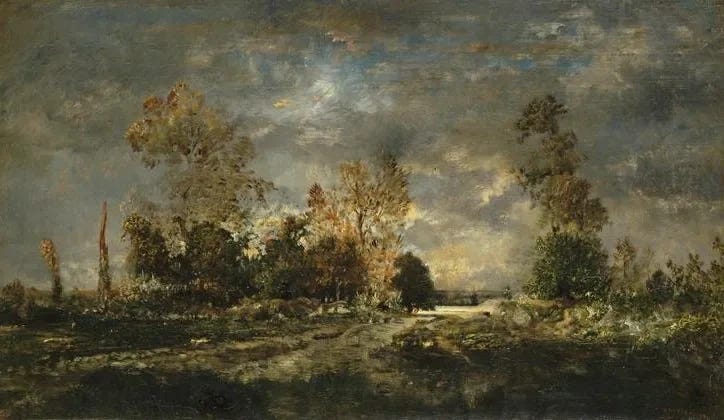À méditer cette semaine
"Ceux que nous avons aimés et que nous avons perdus ne sont plus où ils étaient, mais ils sont partout où nous sommes." — Alexandre Dumas
"Those we have loved and lost are no longer where they were, but they are everywhere we are."
La Chanson à savourer
Le Poème de la semaine
Victor Hugo – Demain, dès l’aube
There are poems that stay with you forever, and Demain, dès l’aube is one of them. Every time I read it, it brings tears to my eyes. The words are simple yet hauntingly beautiful, making the emotion more powerful and raw. It’s a poem I return to often, and it is my hope you will too.

Laissez les mots vous emporter :
Tip: For the best learning experience, listen first, then read, then check the translation. Repetition is key, immerse yourself as much as you'd like!
Normal Speed Audio:
Les Paroles :
Slow Speed Audio:
La Traduction :
A la Rencontre du Poète :
Victor Hugo (1802–1885) is considered one of the greatest writers of the 19th century. From his socially engaged poetry to his realist novels, Hugo left an indelible mark on literary history with his monumental and incredibly diverse body of work. He is also known as the writer with the richest vocabulary in all of French literature. He wrote Demain, dès l’aube in memory of his daughter, Léopoldine, who tragically drowned at 19 in the Seine.
Vocabulaire clé & Expressions :
L'aube – The dawn
Blanchir – To whiten, to turn pale
Demeurer – To remain, to stay
Le dos courbé – Bent back, a posture of sorrow
Houx – Holly (symbol of eternity)
Bruyère – Heather (symbol of solitude and remembrance)
Points de Grammaire :
1. Future Simple
The poem is written in the future simple tense, reinforcing the certainty of the journey.
Examples:
Je partirai → I will leave
J'irai → I will go
Je marcherai → I will walk
J’arriverai → I will arrive
Je mettrai → I will place
2. Negation
"Je ne regarderai ni l’or du soir qui tombe, ni les voiles au loin descendant vers Harfleur."
"ne...ni...ni" → Neither ... nor
The construction negates both objects (or du soir and voiles), emphasizing his focus on his grief.
Dernière Pensée
This poem carries a weight of sorrow, but also of love. It’s not just about loss, it is about devotion that transcends distance, time, and even death itself. Each step taken in silence, each image passed without a glance, is a testament to an enduring connection. It is a quiet, solemn journey, and at its end, a simple yet deeply meaningful gesture: a bouquet, a remembrance, a love that never fades. It’s a reminder that even in the face of unbearable pain, love continues to guide us, and memory is something that keeps our loved ones alive in our hearts.
See you next week for another poetic journey. Bonne écoute, bonne lecture, et à bientôt.
Bonus: Le poème en chanson











